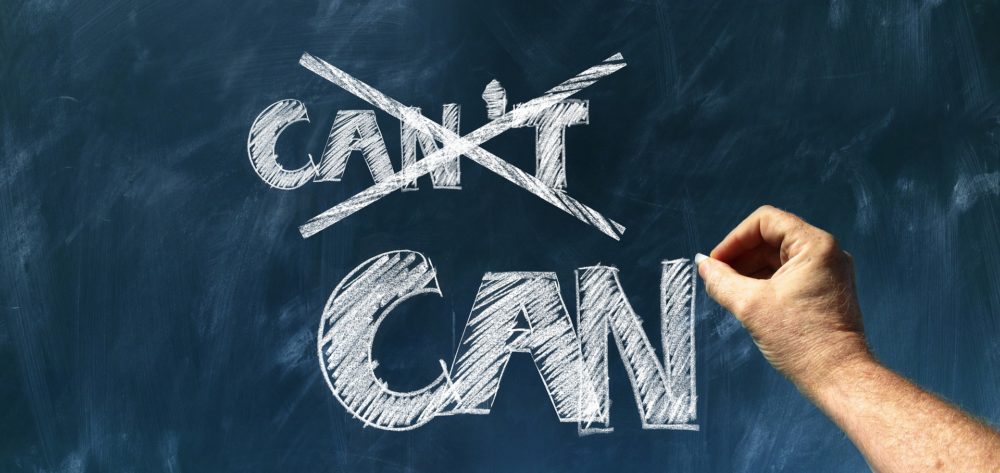Author: Richard Conn
Go to Source
The Harvard
Business Review Entrepreneur's Handbook: Everything You Need to Launch
and Grow Your New Business 

Free $0.00 Amazon
This article, 11 Best Freelance Skills to Learn to Achieve Freelancing Success, was published on the Millo.co blog. Thanks for reading!
It is not easy to freelance. You need to be on the top of your game all the time. Once you choose freelancing as a long term career choice you have to focus on your personal development, and while your technical (hard) skills are important, soft skills play an important role in your success, too.
It’s paramount for freelancers to realize that despite the remote work model, they cannot exist in isolation and they need to know how to interact with people. There are a number of soft freelance skills to learn, much different from ones required in an office environment, but equally crucial.
With the myriad of tasks and engagements that come your way, you need to be equipped to deal with the challenges of meeting new clients, convincing them to hire you, and maintaining them.
There are a few administrative and business related freelance skills to learn that would serve you well, too, like bookkeeping and management. In a skills reliant economy, soft skills are becoming increasingly pivotal for workplace success, for the employed and the self-employed alike.
The best freelance skills to learn are the ones that help you make your interaction with others harmonious. These skills are essentially personal attributes that will help you grow as a person and as a freelancer.
Here’s the best freelance skills to learn to succeed as a freelancer
Below we have mentioned soft skills that are the best freelance skills to learn in order to gain clients and impress them. These give you keen insight and make you a high level performer that most clients will want to engage long-term.
These skills will help you freelance successfully, and regardless of what hard skills you have to offer, these soft skills will help you endlessly to land and retain clients.
Freelancing is mostly about having the right attitude, and most of these skills have some value of emotional intelligence attached that contribute to this attitude. There is an overlap in the skills mentioned below because they work together to create a freelancing persona aimed at success.
Here are the eight best freelance skills to learn or hone:
1. Collaboration
Teamwork is necessary for freelancers, despite them being mostly independent workers. They need to be able to work with other freelancers. For example, a developer working on building a website needing to work with a graphic designer.
Freelance writers often have to collaborate with other freelance writers, too. The corporate world requires that people collaborate extensively and work in multiple settings with diverse groups.
We all are aware that teamwork makes the dream work. A freelancer who values their independence and can also work well in a team, has greater chances for success as compared to one who cannot work with others. You need to be intrinsically motivated and not have your clients monitor you like a boss.
Collaboration is one of the most essential professional competencies, and includes networking as well. Not only do you need to maintain existing relationships with stakeholders, you need to be able to constantly create new ones with clients, freelance colleagues, and via the online talent marketplaces on which you depend.
Learning how to collaborate, especially in a digital environment can be overwhelming. It’s important to take advantage of the multitude of tools that can make things easier for you.
Think: social media channels, email and instant messaging apps. And, as you grow, you can look into more ways to be easily accessible communication wise. Tools like all encompassing website builders such as Squarespace or a video conferencing tool are just some suggestions.
Your collaborative efforts should help you make lasting impressions on clients when they see a freelancer who isn’t too independent and is willing to work with his or her peers.

2. Adaptability
If the pandemic of 2020 has taught us anything, it is that change is inevitable. To be able to easily adapt to that change is a trait necessary for success in any field. That’s why adaptability is one of the best freelance skills to learn.
Be flexible in your work and willing to adapt to the changes in the market. Rigidity is for the untalented. If you have what it takes to make your mark in your field of choice, especially as a freelancer, be willing and able to adapt easily.
Don’t worry about compromising your reputation and don’t cave in easily, but work to come to a mutual understanding or compromise.
Therein lies your ability to accept someone else’s judgement and impress your clients by being willing to listen to them and not remaining stubborn.
Develop your ability to adapt to different clients’ preferences. You will have many who will take your word for it as you are the subject matter expert, but many will try to force their opinions.
To freelance successfully across the board, you have to give importance to your client. You need to keep a balance between what is important to you, to maintain your standard of work, and what pleases the client.
3. Negotiation
Negotiation is perhaps one of the best freelance skills to learn, if not the best! You need to be able to discuss multiple matters with a client that will bring you to a negotiation table. Whether it is your hourly rate, the time you require, or other issues.
With the freelancing setup, it is possible that such negotiations take place via email or through a freelancing platform, making it all the more difficult. Not to mention that you need to be able to negotiate successfully in a short amount of time.
Negotiation is an essential soft skill because your finances are wholly dependent on it. As a freelancer, you want to be able to make the most out of every project. Negotiation helps you reach a compromise and a successful negotiator is one who doesn’t let the other party feel like they have lost, while not losing their own stance.
Successful negotiation requires strategizing and cooperating with the client, while also being on top of your game at persuading them to be on your side. To be a good negotiator you need to ramp up your listening skills, leave your ego behind, empathize but do not absorb their problems, expect a compromise, and always be prepared.
4. Problem solving
Problem solving is a skill that is necessary for most professions and is also a transferable skill that can be used in multiple situations and contexts. You would find it hard to come across a line of work that doesn’t face any problems. Problem solving for freelancers requires critical thinking.
Assume you are a web content developer and were asked to help drive traffic to a new website using search engine optimization (SEO).
Fierce competitors are already ranking first for the given keywords. How can your client rank more highly in search engine results, considering they are new entrants in their niche?
That is a problem, and to solve it you need to firstly approach it with a cool and level head. Thinking about relevant keywords and other web traffic drivers can be a good place to start.
Most problems look impossible when you begin, but if you break them down and start working your way up, they become easier. Think about Plan Bs and workarounds.
Problems are inevitable, it is how you tackle them that defines you. Accept the challenge and commit yourself to coming out on top. Critical thinking oftentimes requires thinking outside the box.
5. Time management
Time is perhaps the most precious resource you have. Most freelancers work on an hourly basis, which means every minute literally counts. Most freelancing projects are time bound. Respecting the client’s deadline or even exceeding them can be a measure of an excellent work ethic.
You can add tremendous value to your time sensitive freelance projects by submitting them on or ahead of time. Your client will be willing to hire you again if you respect deadlines.
Time management and productivity go hand in hand. You need to be able to manage multiple clients and submit all their work as per their deadlines.
If you are ever about to miss a deadline, make sure you inform your client beforehand. If you find the right VoIP phone service provider, it should be easy to stay in touch with clients, wherever you are. Make the best use of your time so you do not have to scramble at the last minute.

6. Interpersonal and communication skills
With most platforms for freelancing being online, digital customer engagement is another vitally important skill to have. To engage and communicate effectively is one of the most important abilities to have for a freelancer, especially in a culture that relies so heavily on acronyms and lingo.
Freelancers must be able to articulate what they do and why it is valuable for potential clients. Being able to write and speak well is critical for success.
Freelancers usually end up communicating with clients using email or text, and that makes the ability to write a commodifiable skill. Have a strong command of the language, so you can be confident while communicating.
Your communication skills will not only come in use when you are negotiating with a client, but also when you are creating reports, presenting your work, or attending regular meetings.
7. Patience and positivity
Freelancing can be hard. You could have days where no new work comes in. The key is not to give up. Keep at it. Keep hunting for the next freelance project, because there is enough work out there.
Some clients take longer to respond, but don’t give up hope. Apply on different platforms and expand your network. While all this might seem cumbersome, you need to do it and do it patiently.
Remaining positive in the face of not having enough work is a mindset rather than a skill. Staying positive can be hard. Even when you have enough work, sometimes you can feel overburdened and unable to meet deadlines, and it is hard to be positive. However, committing yourself to being positive whatever happens can be an invaluable skill to have.
Approach all new projects with a positive attitude and see how it helps make your work better. Maintaining an optimistic outlook is important for freelancing success. It shows clients that you have a healthy attitude and while you can’t be positive all the time, it is good to focus on things you can control and be positive about working to improve those first.

8. Stress management
Burnout is a common concern amongst all workers. The major problem with freelancing is that you do not have a method to the madness. Organizations have a standard for time off, for sick leave, and casual leave.
Freelancers are usually working as per their convenience from the comfort of their home, and they find themselves working even when they are sick, with no time off (not paid, anyway).
This is because you get paid for the projects you complete, by the hour, and there is no concept of paid leave. If you want a holiday, you have to forego work and that means a hit on your income.
Freelance burnout is a real challenge. Working every hour of the day can do more bad than good. You might stress yourself so much that you need a lot of time off, and that can really affect your standing amongst other freelancers.
It is a competitive world and your clients will easily find another freelancer. So take care of your health, work only as much as you can handle, and organize your work days. Take weekends off and make sure you spend time with family.

Best freelance skills to learn for the business side
Among the in demand soft and hard skills to develop for your freelancer profile, there are some that are very important for the business side of your freelancing.
There are some skills that are needed in addition to your technical skills and the above listed soft skills. These are not soft skills as such, but areas of business you need to know a little about if you want to have a successful freelancing business.
9. Accounting
You own your finance department if you’re a freelancer. You are the CFO and the CEO. You need to know where to invest your profits, keep up with your taxes, and to know the answer to the question: what is demand forecasting and how can it help your business?
All this is necessary to grow and maintain your business. Demand forecasting can help you organize your calendar and is important for future planning.
Familiarize yourself with the financial network, so you do not have to outsource your taxes and accounting work as that can be expensive. You could also use a freelance accounting tool to help.
10. Marketing
As a freelancer you are 100% responsible for your income every month, which means that you need to focus a major part of your time trying to win clients. Convincing clients that they need your service is an important skill to have.
The freelancing market is growing broadly and that means that while there is a lot of work, there is also a lot of competition. Your potential clients will have a number of freelancers to consider, so you need to make an impact and do so fast.
You need some degree of salesmanship, so clients can ‘buy-in’ to your pitch. You need to have decent freelance marketing skills to be able to represent yourself as someone who has a reputation for being great at what they do.
In the age of social media, it would help to use your LinkedIn or Instagram profile to create visibility. In the digital age, too, having a website for your freelance profile would not go amiss. Your website needs to be search engine optimized so clients can Google you. You need to get exposure so you can have as many clients as possible reach out to you.
11. Management
A good freelancer needs to be his or her own manager. That makes the difference between an average freelancer and an exceptional one. Managing time can be one aspect, but managing your workload and setting long term goals is also vital for your freelance business.
A successful freelancer is one who knows which direction their business is headed in a couple of years. Try to be one-step ahead as you map out your future.
With all the technology at hand: project management tools, online courses to develop new skills, social media and email management to using a cloud phone service, these are options you have at your disposal for whenever you need them.
Since you are your own boss, it’s important to be able to continuously foresee ways to change and improve your services and maximize productivity and growth.
Conclusion
You might assume that you need formalized training for most skills, but the above are the result of home training or can be learnt through experience. The 11 skills we’ve listed are the cornerstones for success for any freelancer. These soft skills are just as important as your technical expertise to advance yourself in your field of choice.
You can improve your soft skills by research and practice. The key is to practice every day and make these skills permanent parts of your freelancing profile. You could read self-help books or find a mentor among people in your network.
Mistakes are natural and we do not expect you to be skilled at the above 11 skills instantly, but keep giving it your best and seek out learning opportunities to improve yourself.
These are the best freelance skills to learn and are becoming increasingly crucial for success. They may even become some of your greatest assets.
The post 11 Best Freelance Skills to Learn to Achieve Freelancing Success appeared first on Millo.co.